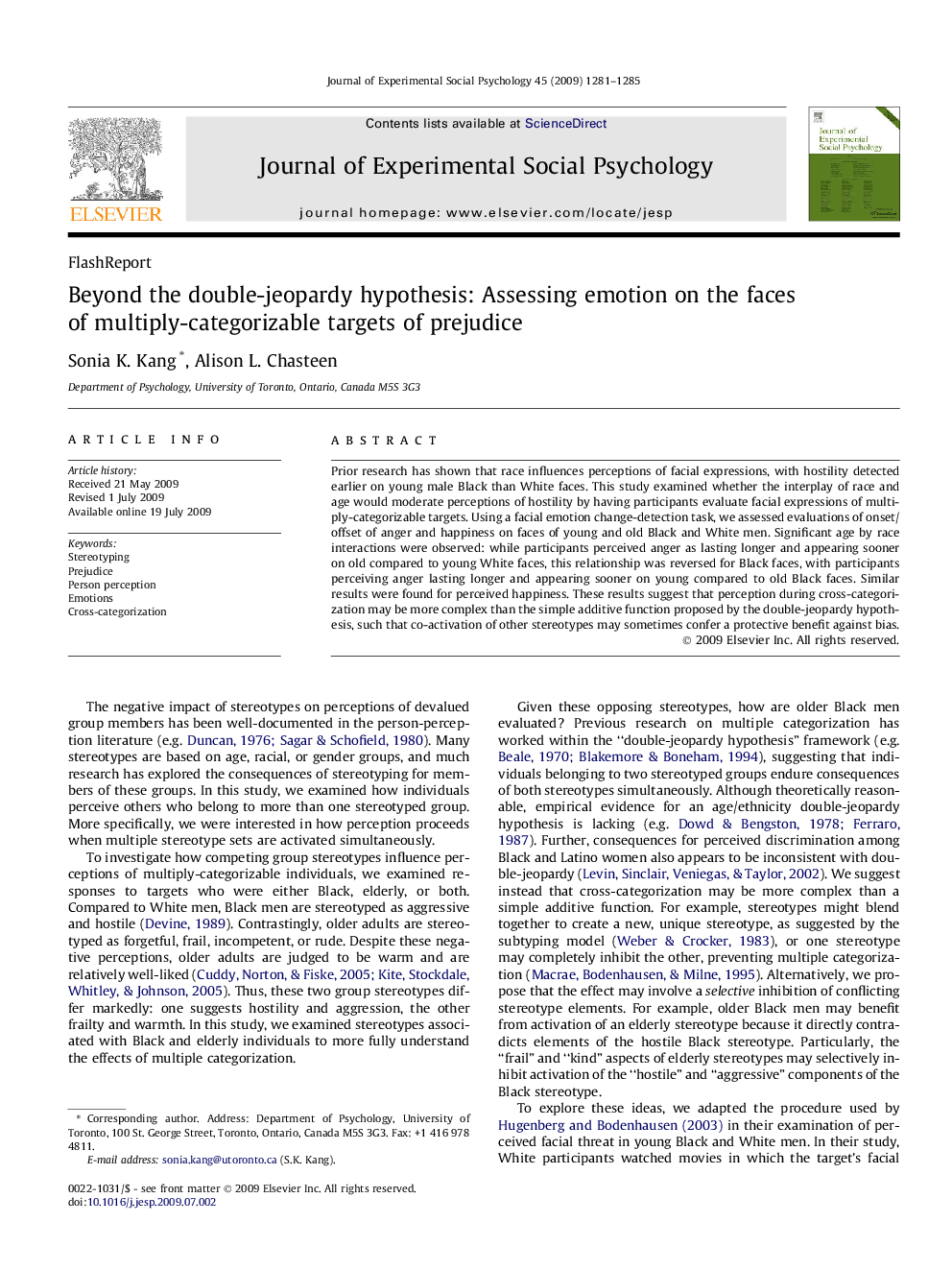| Article ID | Journal | Published Year | Pages | File Type |
|---|---|---|---|---|
| 948740 | Journal of Experimental Social Psychology | 2009 | 5 Pages |
Prior research has shown that race influences perceptions of facial expressions, with hostility detected earlier on young male Black than White faces. This study examined whether the interplay of race and age would moderate perceptions of hostility by having participants evaluate facial expressions of multiply-categorizable targets. Using a facial emotion change-detection task, we assessed evaluations of onset/offset of anger and happiness on faces of young and old Black and White men. Significant age by race interactions were observed: while participants perceived anger as lasting longer and appearing sooner on old compared to young White faces, this relationship was reversed for Black faces, with participants perceiving anger lasting longer and appearing sooner on young compared to old Black faces. Similar results were found for perceived happiness. These results suggest that perception during cross-categorization may be more complex than the simple additive function proposed by the double-jeopardy hypothesis, such that co-activation of other stereotypes may sometimes confer a protective benefit against bias.
